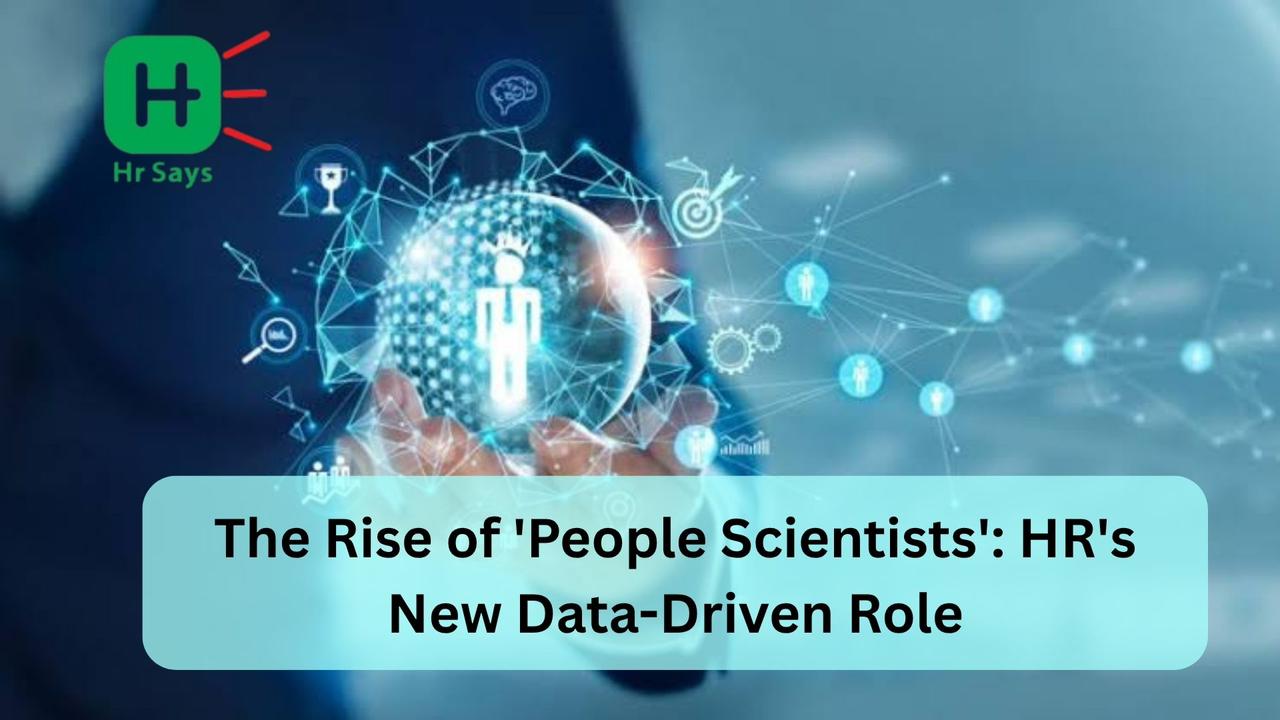What happens when HR stops guessing and starts measuring? That’s the question behind the quiet rise of People Scientists. They're not here to replace HR. They're here to refine it—with data, not opinions. The shift is subtle but significant.
A New Kind of HR Role
They don’t wear lab coats. But they work like scientists. Their lab is a dashboard. Their tool? Data.
People Scientists are human resource professionals who use evidence—not instincts—to guide workforce strategy. Not the usual “gut-feel” hiring. Not the once-a-year survey either. These specialists dive into employee data to understand what works and what doesn’t.
● What makes people stay?
● Why are some teams always underperforming?
● Which benefits truly improve morale?
Patterns emerge. Decisions get smarter.
Behind the Scenes of the Role
Their job doesn’t end at data collection. It begins there.
● They design surveys that actually get answered.
● They track behavior trends without invading privacy.
● They build models that predict churn and burnout.
● They test HR strategies before scaling them.
It’s HR—but tested. Tweaked. Tracked. Because guesswork no longer works.
And the rise of remote work has only increased this need. Distance makes feedback harder. Data fills the gap.
Why Now?
Three reasons stand out:
● Too much noise: Feedback channels are crowded. Opinions clash.
● Fast-changing teams: Hybrid, global, multi-generational workforces need custom insights.
● Pressure to prove ROI: HR must now show impact in numbers, not just culture quotes.
And with AI entering the workplace, measuring human response is critical. Not everything can be automated. But everything can be observed.
The Caution Zone
It’s not all neat dashboards and clean answers. There are risks.
● Over-relying on data can erase nuance.
● Tracking too much can create mistrust.
● Misinterpreting results can lead to poor decisions.
The goal isn’t surveillance. It’s smarter support. The human element can’t be lost in the numbers.
Final Thought
The rise of People Scientists isn’t about glamor. It’s about grounding HR in facts.
Yes, the title may sound new. But the need was always there.
Because people have always been complex. Now, HR finally has the tools to understand them better.
Quietly, the science of people is changing the way business works. And this time, the numbers speak human.

 A new breed is emerging within Human Resources—one that crunches numbers, finds patterns, and influences real decisions. These are the People Scientists. Their role? Converting workforce data into intelligent, usable information that business cannot afford to ignore.
A new breed is emerging within Human Resources—one that crunches numbers, finds patterns, and influences real decisions. These are the People Scientists. Their role? Converting workforce data into intelligent, usable information that business cannot afford to ignore.








.jpeg)
.jpeg)

.jpeg)





.jpeg)



.jpeg)

.jpeg)



